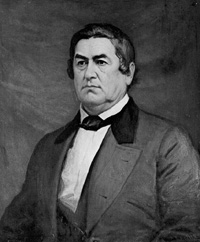- In Washington, the Asst. Sec. of Navy Gustavus V. Fox and Gen. Benjamin Butler awaken President Lincoln late at night to inform him of the capture of Forts Hatteras and Clark, in North Carolina./1861
- In Richmond, Virginia, the Third Session of the Provisional Confederate Congress adjourns after approving the promotions of Samuel Cooper, Robert E. Lee, Albert Sidney Johnston, Joseph E. Johnston and P. G. T. Beauregard to full general in the Confederate Army./1861
- The C.S.S. Teaser shells Union Camp Butler on Newport News Point, Virginia./1861
- The USS George Peabody, commanded Lieutenant Lowry, captures the brig Henry C. Brooks in Hatteras Inlet, North Carolina. /1861
- The USS Jamestown under Commander Green, captures the British blockade running schooner Aigburth off the Florida coast./1861
- A skirmish occurs at Munson's Hill, Virginia./1861





























